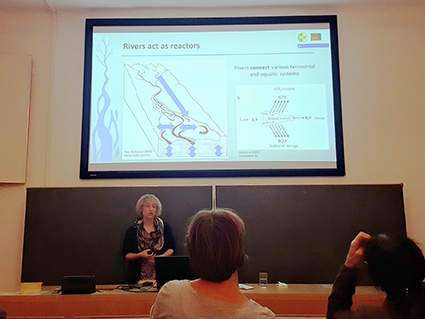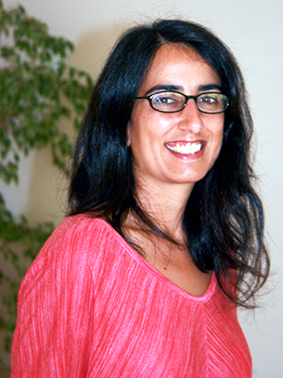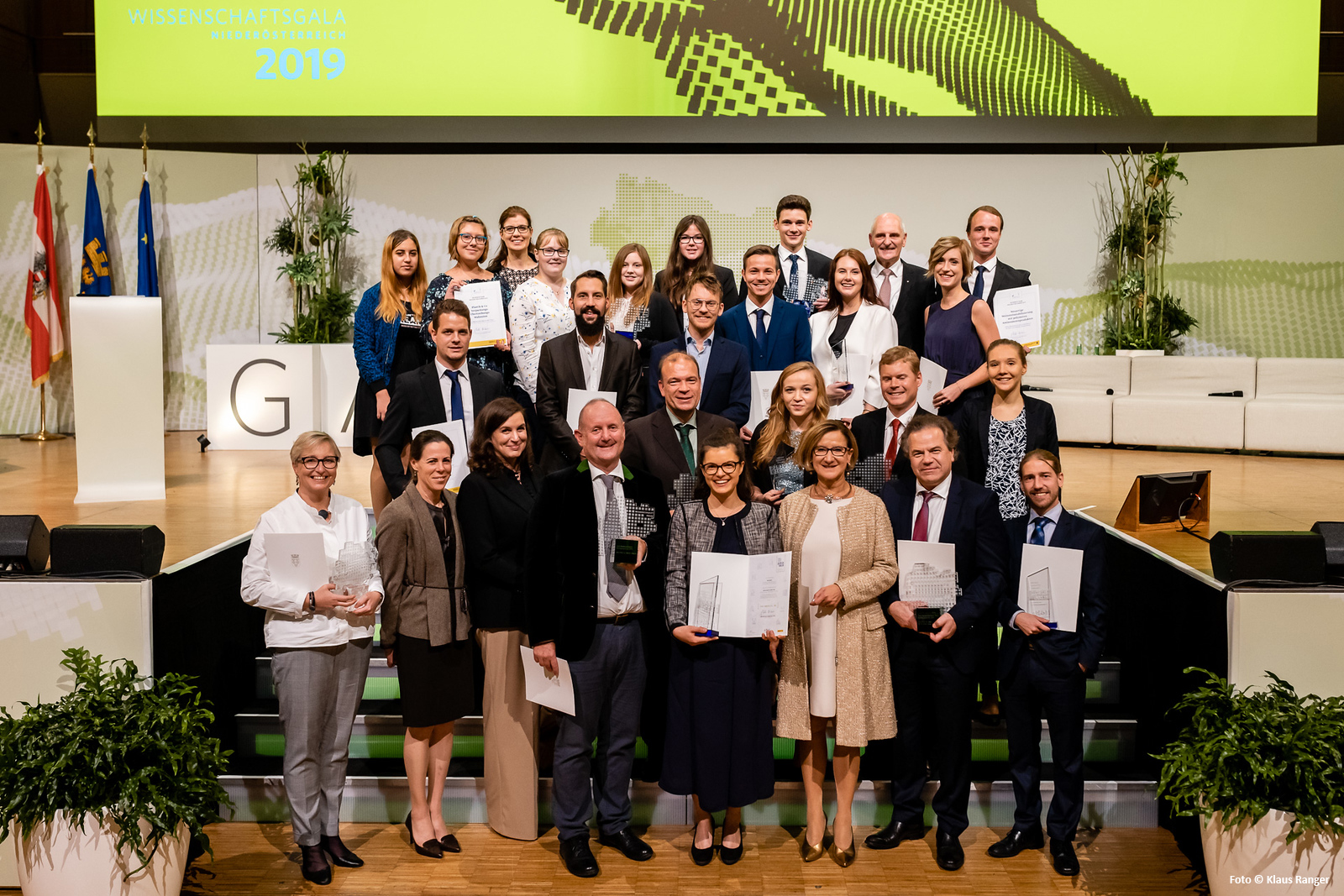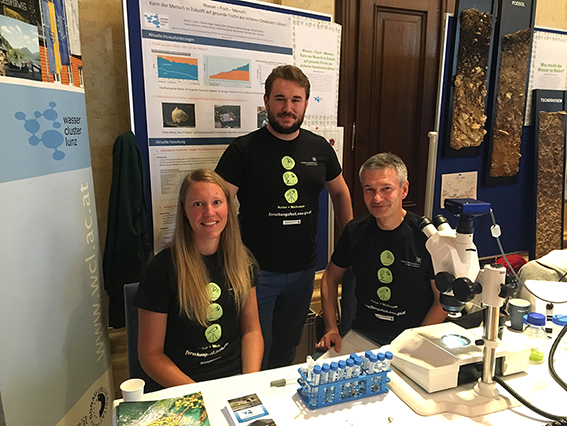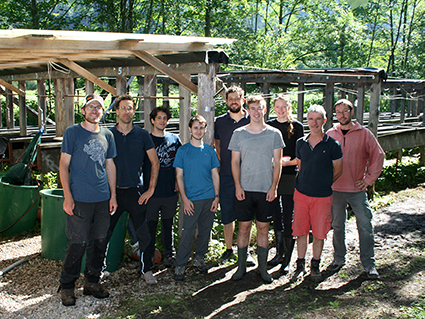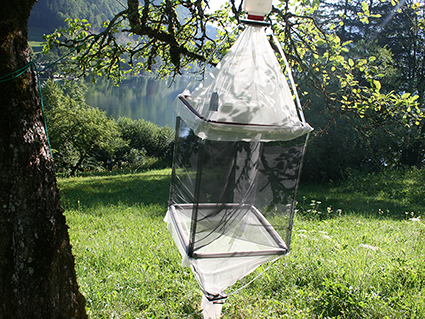Gabriele Weigelhofer gave a lecture about "Comparing headwaters' and floodplains' nutrient and organic matter cycling" at the Boku on 16 Dez 2019 and has been recommended for habilitation.
Our congratulations!
Hier ein Themenüberblick:
- Die wissenschaftlichen Wellenklänge
- Wissen schaf[f]t Zukunft Preis
- DACH Projekt (FWF-DFG) "AquaTerr"
- Vjosë: Refugium bedrohter Arten
- Transnational Access 2019
In November 2019 Magdalena Senitza finished successfully her MSc-thesis with the title "Effects of desiccation on heterotrophic microorganisms in benthic sediments in intermittent streams" under Supervision from Gabriele Weigelhofer (AG BIGER).
Congratulation!
During her Master thesis, which won now the "Wissenschaf[f]t Zukunft" Award 2019 from NÖ Forschungs- und Bildungsges.m.b.H., Lena Campostrini worked with experimental flumes at WasserCluster Lunz to study the effects of increasing inputs of dissolved organic material (DOM) in aquatic ecosystems.
On the one hand, the award-winning project aimed to investigate the influence of agriculture on the quantity and quality of dissolved organic carbon in rivers, and on the other hand to show the effects of these inputs on aquatic carbon cycles in river ecosystems based on microbial biofilms.
Foto © Klaus Ranger
About 200 guests visited WasserCluster Lunz on October 12 at the Open Day 2019 and experienced research first-hand. During talks, the interested visitors could learn more about topics such as the changes in Lake Lunz in times of climate change, the experimental water research on WasserCluster Lunz or the effects of algae on our brain. In addition, guided tours gave visitors insights into various laboratories and because of several hands-on station including a riddle rally for children visitors were enabled to become active themselves.
We thank all visitors for their interest and are pleased to keep them informed in due time by newsletters and articles on our website until the next open day.
On 27. September 2019, the "Forschungsfest Niederösterreich" took place at the Palais Niederösterreich in Vienna. Members of the Workinggroup LIPTOX informed numerous visitors about there research, especially about the question Water-Fish-Human: can human beeings count in future on healthy fish from save aquatic systems?.
More informiation you find here.
An international group of researchers conducted an experiment on the sound of flowing waters in the Lunzer Rinnen Experimental Flumes in July and August. The experiment investigated whether underwater sound recordings can be used to quantify the gas exchange (oxygen, CO2) of turbulent mountain streams with the atmosphere. The project was funded by the AQUACOSM EU-project and led by Dr. Marcus Klaus, Umeå University, Sweden and the WCL working group EcoCatch.
Photo (from left to right): Marcus Klaus (SE), Gianluca Botter (IT), Filippo Vingiani (IT), Nicola Durighetto (IT), Jakob Schelker (AT), Paul Schwaigerlehner (AT), Gertraud Steniczka (AT), Thierry Labasque (FR) and David Vilbert (FR); Not shown is: Michael Scharner (AT)
Fish are considered as a good source of omega-3 fatty acids. Less well known is that this also applies to insects. The role of insects in the proximity of local lakes for the food chain is examined by the AQUATERR project funded by the Austrian Science Fund FWF. Ö1 interviewed in the radio show "Wissen aktuell - Insekten, Quanten" Martin Kainz, leader of the working group LIPTOX at WasserCluster Lunz, about this topic.
Photo: Insect trap next to the building of WasserCluster Lunz.




